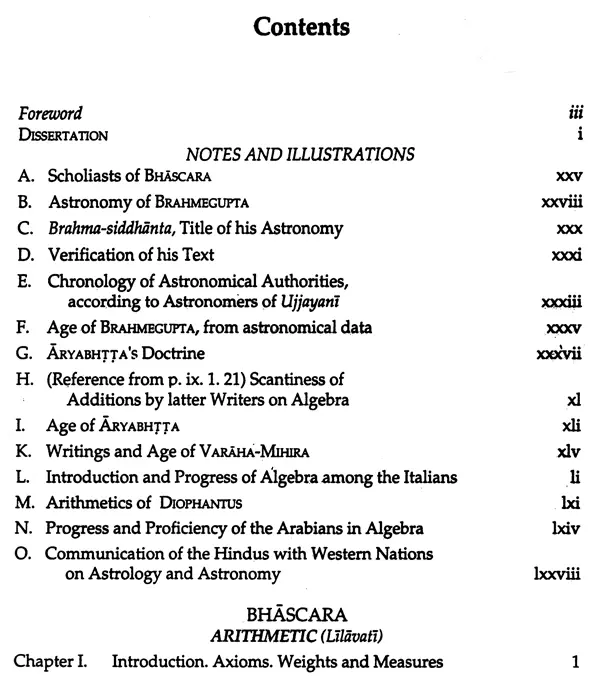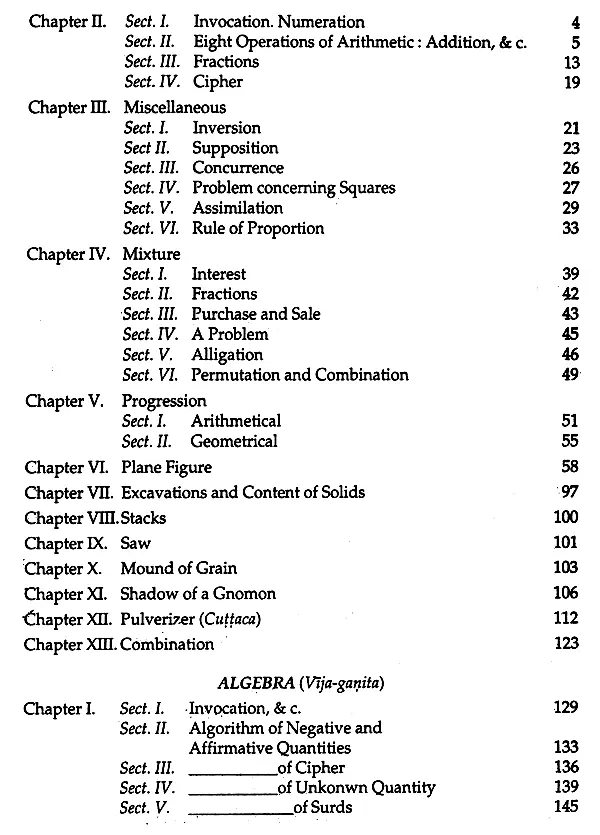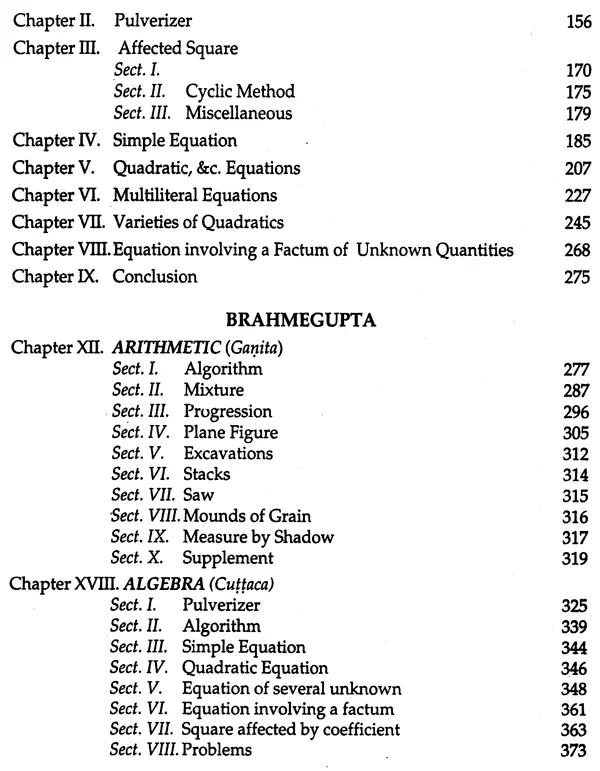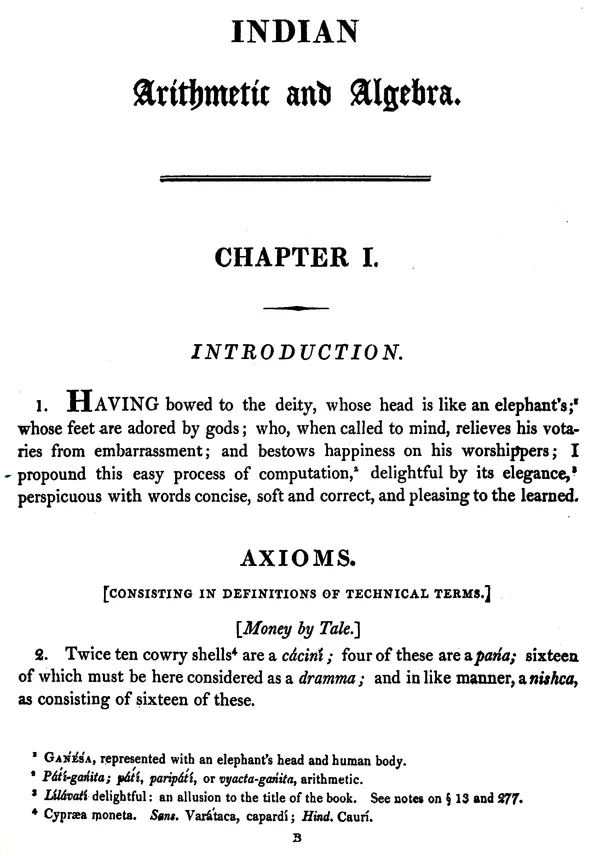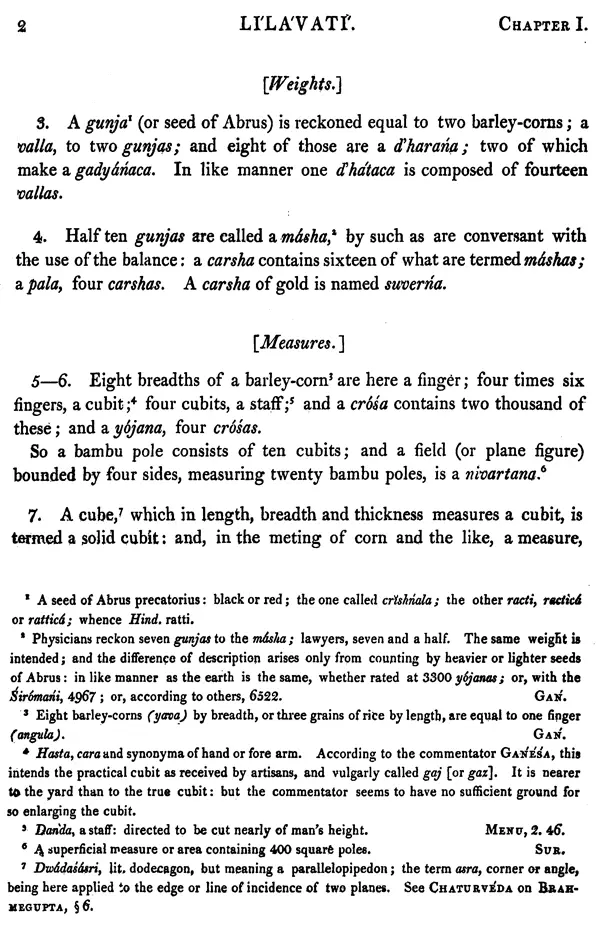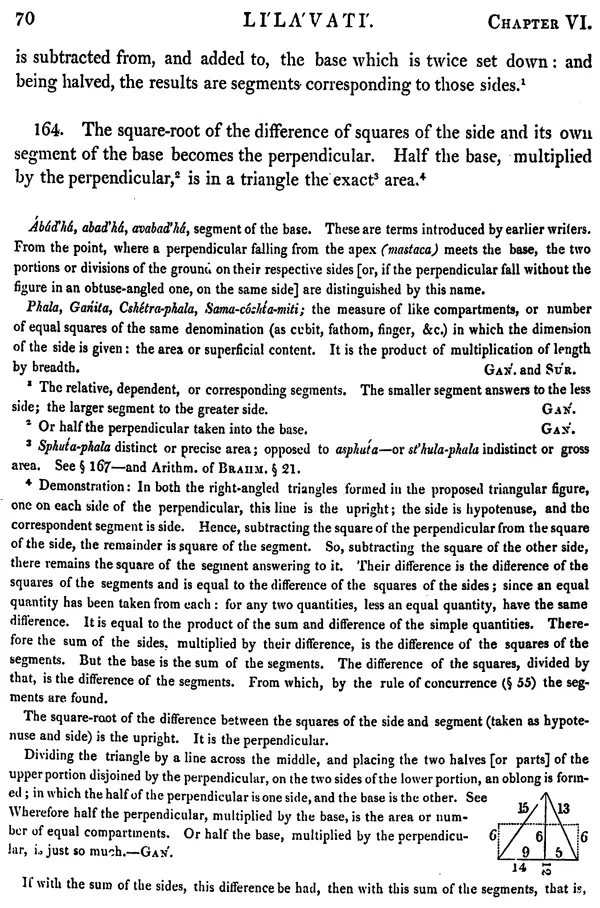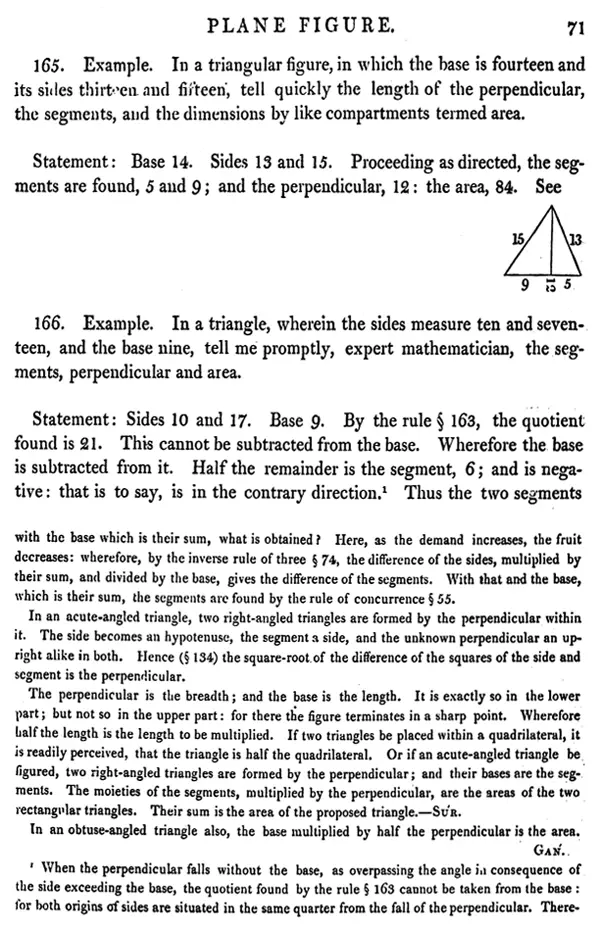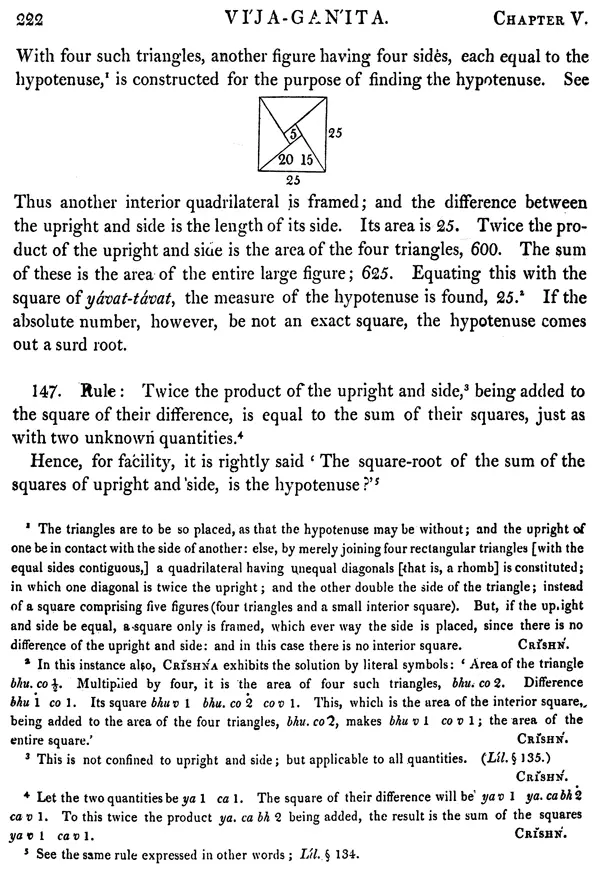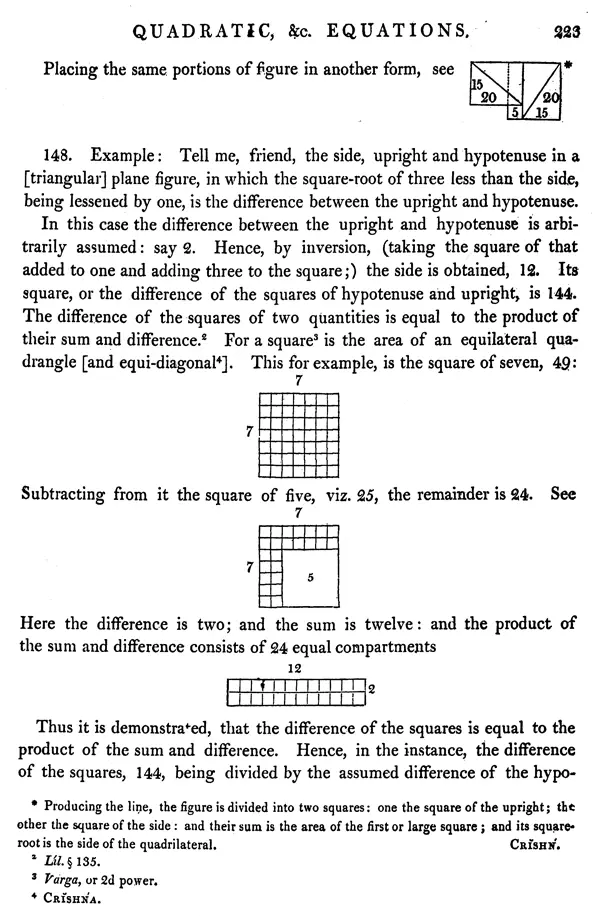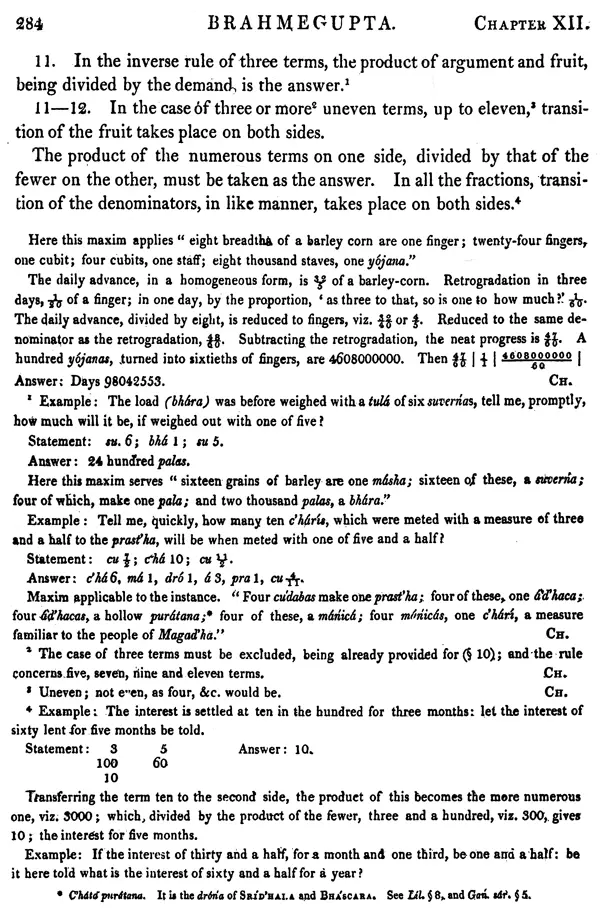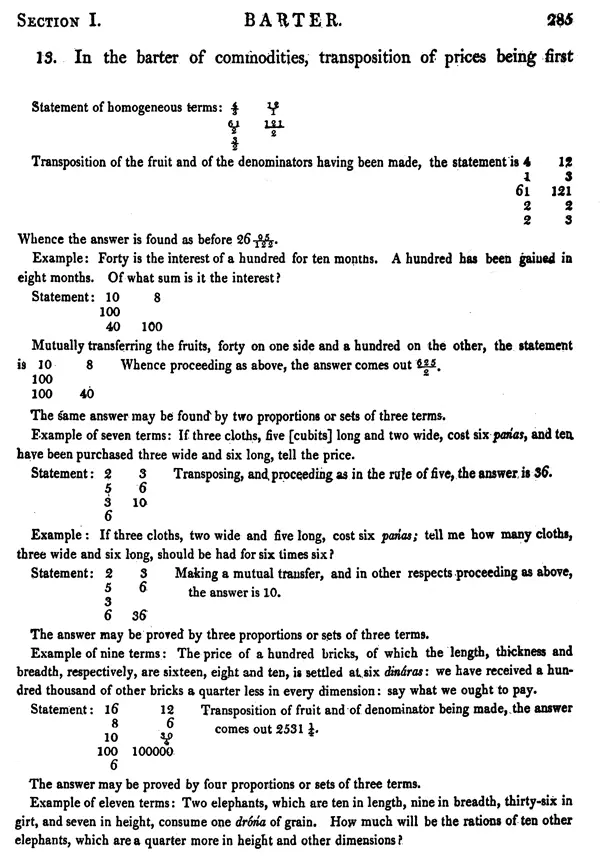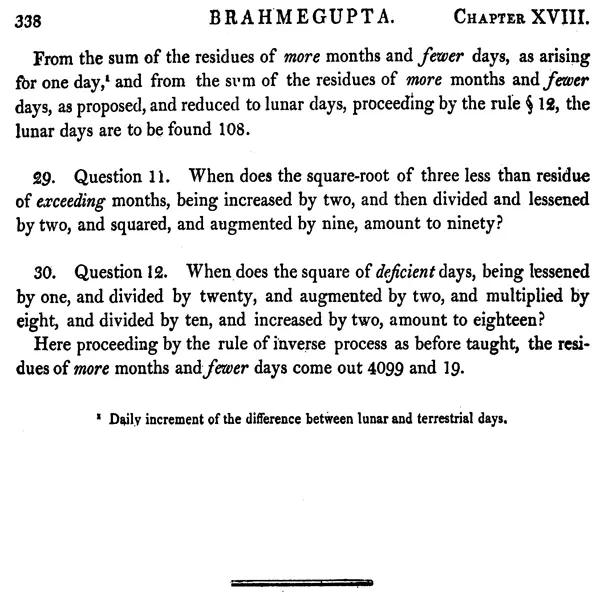
Classics of Indian Mathematics (Algebra with Arithmetic and Mensuration from the Sanskrit of Brahmagupta and Bhaskara)
Book Specification
| Item Code: | UAF455 |
| Author: | Henry Thomas Colebrooke |
| Publisher: | Sharada Publishing House, Delhi |
| Language: | English |
| Edition: | 2005 |
| ISBN: | 8188934240 |
| Pages: | 378 |
| Cover: | HARDCOVER |
| Other Details | 10.00 X 7.50 inch |
| Weight | 1.06 kg |
Book Description
It is indeed gratifying that Colebrooke's celebrated work, Algebra, with Arithmetic and Mensuration, from the Sanskrit of Brahmagupta and Bhaskara, is being reprinted. It was one of the earliest fruits of the European encounter with the scientific heritage of India. While many of the other books of this period became dated and are now merely historical curiosities, Colebrooke's work remains as useful today as when it appeared first in 1817.
Henry Thomas Colebrooke was born in London on 15 June 1765, as the third son of Sir George Colebrooke who was a member of the British Parliament and a director of the East India Company. Because of his father's association with the East India Company, a career in India was envisaged for the young Colebrooke. He was educated privately at home in classical languages, French, German and mathematics and was packed off, when he was barely seventeen, to India to join the service of the Company as "writer" at Calcutta in 1782. Four years later, he was appointed Assistant Collector at Tirhut. He began his study of oriental languages, especially Sanskrit. In 1789 he was sent to Purnia. Just about this time, in 1784, William Jones founded the Asiatic Society at Calcutta for "inquiring into the history and antiquities, the arts, sciences, and literature of Asia." Colebrooke was attracted by the activities of this newly founded Society, and decided to pursue the study of Sanskrit legal texts in order to gain a better knowledge of Hindu law-a knowledge that was essential for his professional career as well. His posting in 1795 as magistrate at Mirzapur, nor far from Benares, gave him the welcome opportunity to widen his knowledge of Sanskrit literature through the acquaintance of the pandits in the Benares Sanskrit College, which was founded by Jonathan Duncan in the year 1791. After an infructuous mission to the court of Nagpur from 1799 to 1801, he was appointed judge in the Calcutta Court of Appeal in 1801.
**Contents and Sample Pages**
